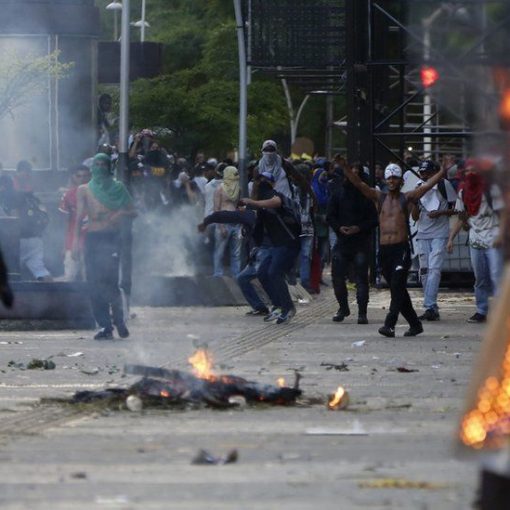Thousands of protesters gathered at Plaza Bolívar in the capital Bogotá, where they were later dispersed with tear gas. In response to the protests, President Duque said that he would open a “national conversation” after the weekend; the Defence Minister Carlos Holmes Trujillo said that 11 investigations into “alleged misconduct by members of the security forces” had begun. Transportation in the capital was largely closed, and road blockades had been built in some areas.
Many protests were peaceful, while some instances of looting and the theft of a public bus occurred in the capital city, where a curfew was enforced in the evening.[11] Some protesters ignored the curfew, with others protesting outside of Duque’s house through the night. In Santander de Quilichao in the southwest of the country, three police officers were killed, and ten more injured, by a car bomb. After the initial anti-austerity and anti-corruption protests had begun, other groups joined in demonstrations, including environmental action groups, animal rights groups, and women’s rights groups. The lootings happening in poorer areas have contributed to an increase in anti-Venezuelan sentiment, with some suspecting Venezuelan migrants to part of the perpetrators.




